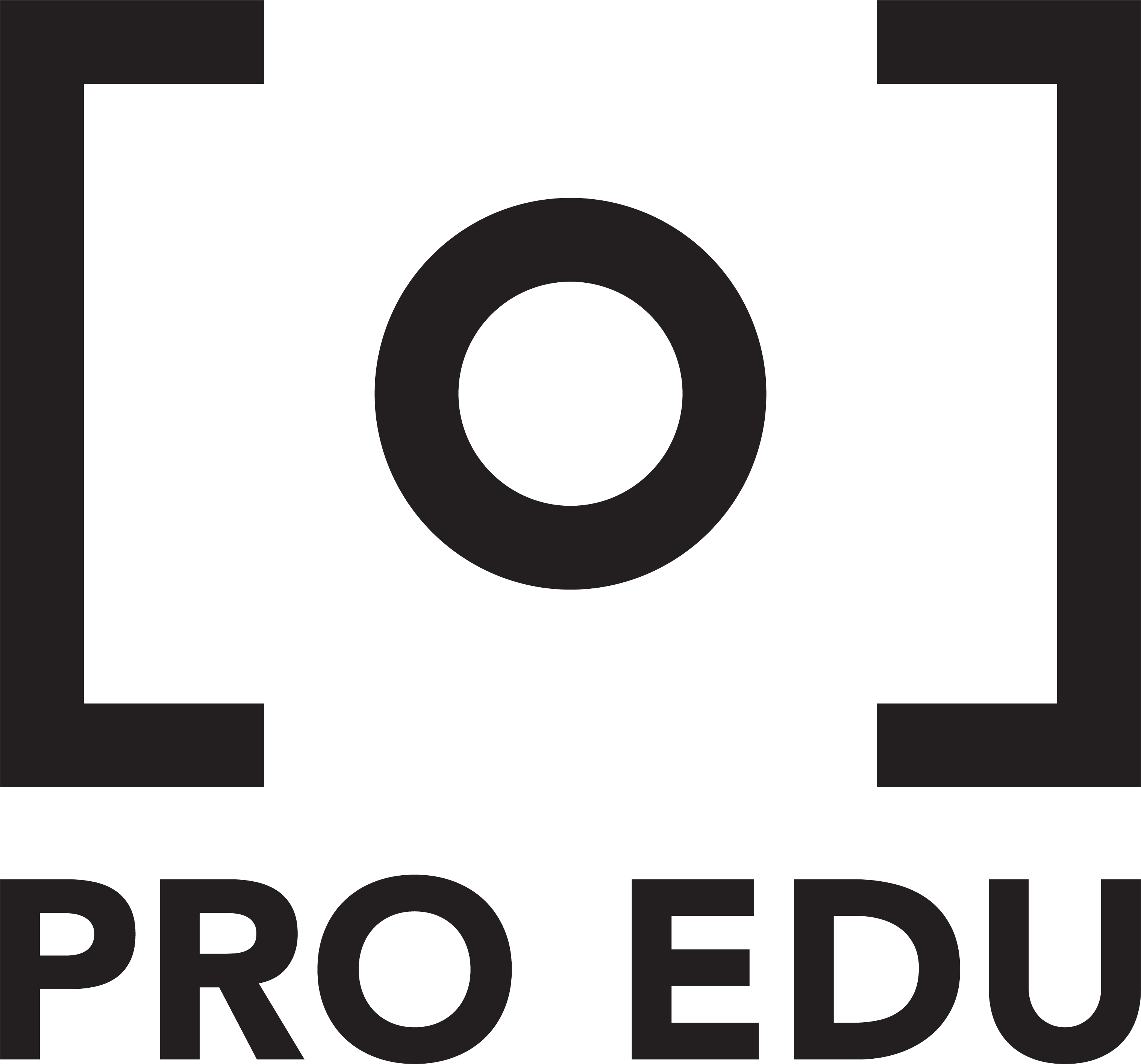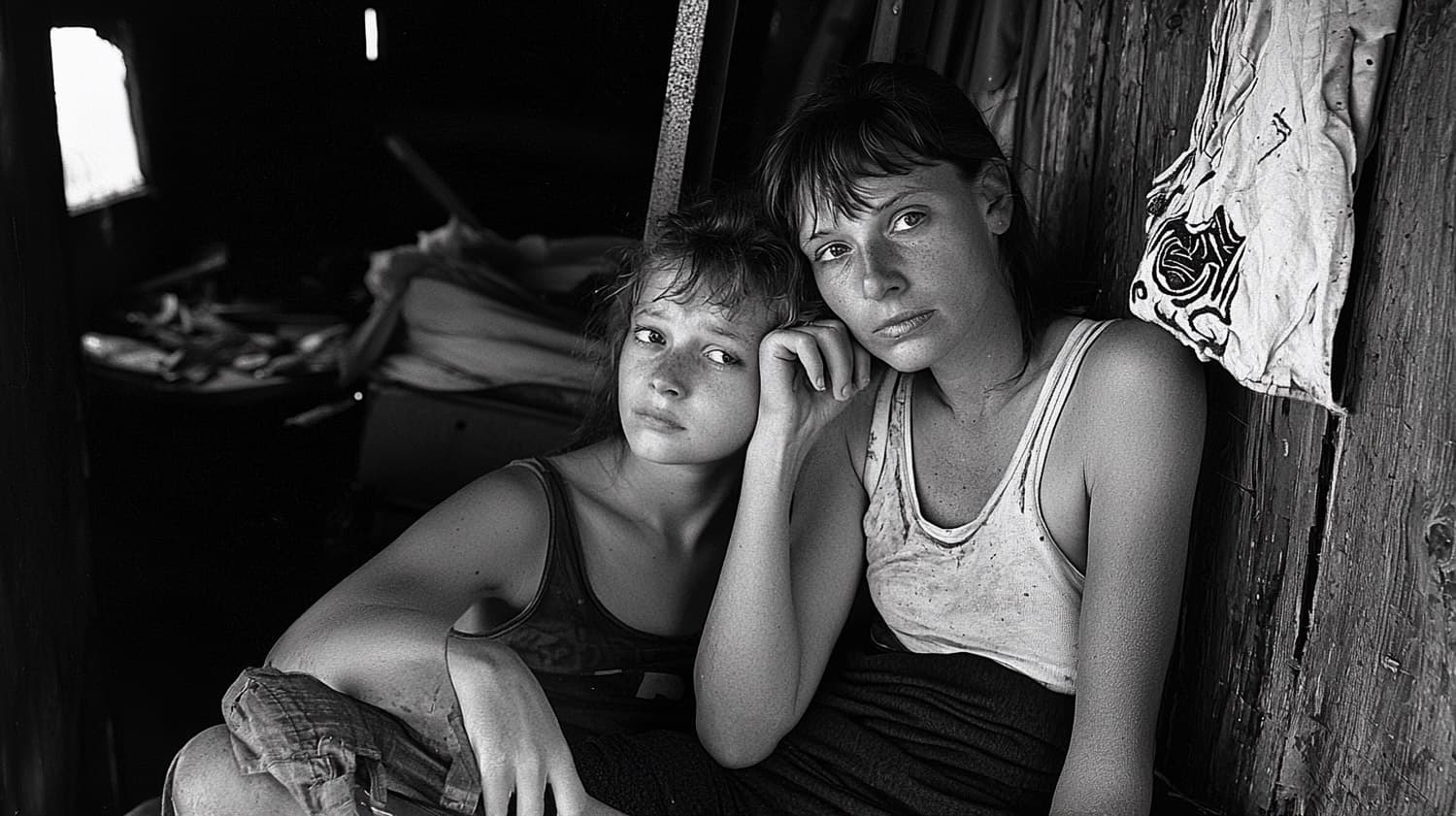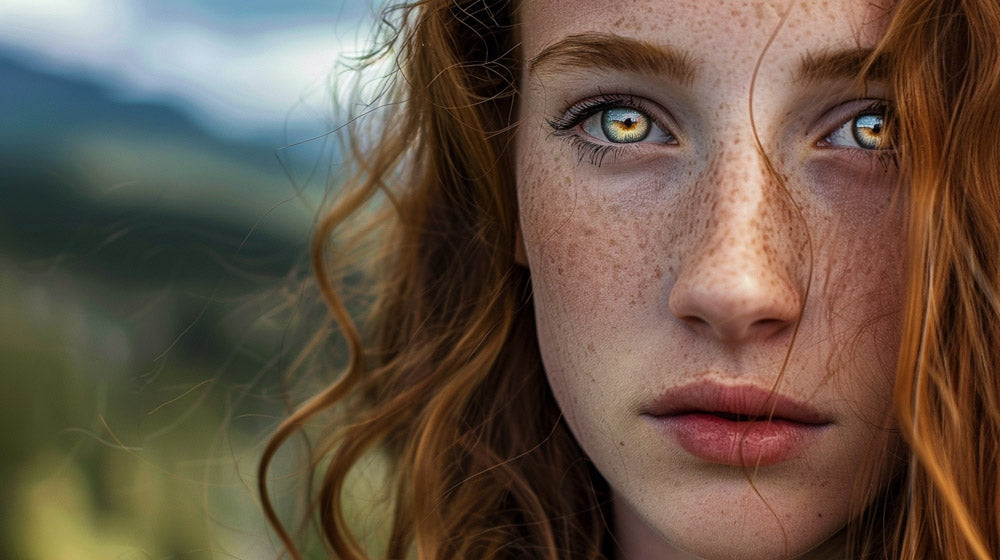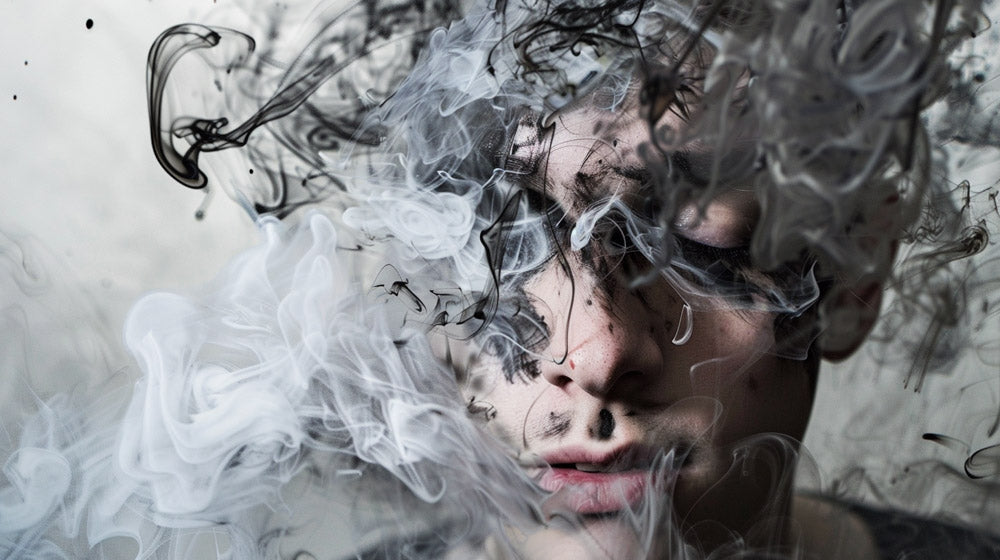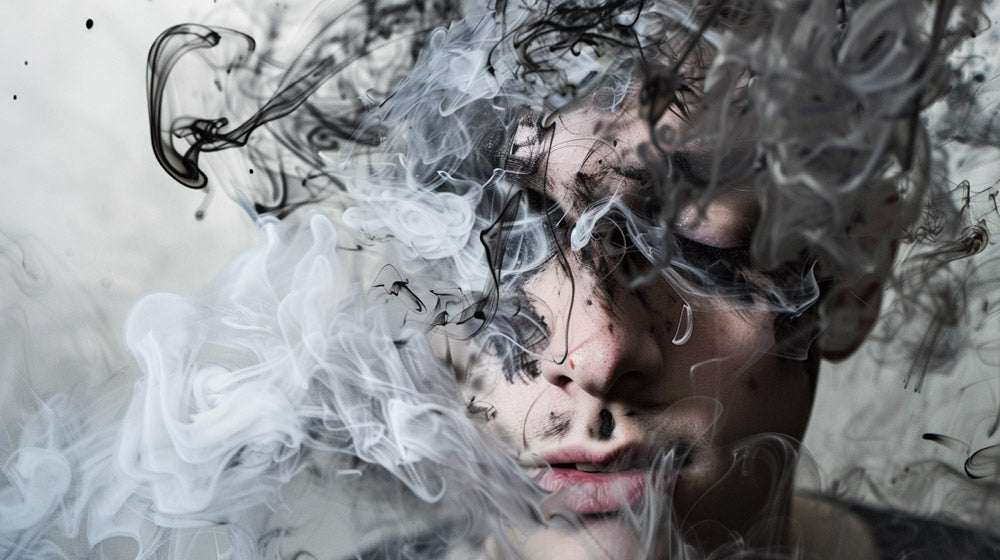Mary Ellen Mark's photography captured the essence of human experience with remarkable intimacy and compassion. Her lens focused on marginalized communities, revealing their struggles and triumphs with unflinching honesty. Mark's empathetic approach to documentary photography allowed her to create powerful images that spoke to larger truths about poverty, class, and otherness.
Throughout her career, Mark developed close relationships with her subjects, enabling her to produce deeply personal and impactful work. Her black-and-white photographs documented the lives of people living on the fringes of society, from psychiatric patients to street children.
This dedication to storytelling through imagery earned her recognition as one of the most influential documentary photographers of the 20th century.
Mark's commitment to her craft extended beyond the camera. She approached each project with unwavering dedication, often spending extended periods immersed in the communities she photographed. This steadfast commitment and nuanced perspective fundamentally changed how we view marginalized groups, challenging societal norms and encouraging viewers to see the humanity in every subject.
Key Takeaways
- Mark's photography captured marginalized communities with empathy and depth.
- Her intimate approach to subjects resulted in powerful, truthful imagery.
- Mark's work challenged societal perceptions and left a lasting impact on documentary photography.
The Life and Career of Mary Ellen Mark
Mary Ellen Mark's journey as a photographer spanned decades, marked by her keen eye for human stories and unwavering dedication to her craft. Her work left an indelible mark on documentary photography, capturing the essence of marginalized communities and individuals.
Early Life and Education
Born on March 20, 1940, in Philadelphia, Mary Ellen Mark grew up in a middle-class family. Her interest in photography began early, sparked by a Brownie camera she received as a child.
Mark pursued her education at the University of Pennsylvania, where she earned a Bachelor of Fine Arts in art history and painting in 1962. She then completed her Master's degree in photojournalism at the Annenberg School for Communication in 1964.
Her academic background provided a strong foundation for her future career, blending artistic sensibility with journalistic rigor.
Photographic Beginnings in the 1960s
Mark's professional career took off in the 1960s when she moved to New York City. She quickly gained recognition for her unique perspective and ability to connect with her subjects.
In 1965, she received a Fulbright Scholarship to photograph in Turkey, a pivotal experience that shaped her approach to documentary work.
Upon returning to the United States, Mark began freelancing for magazines such as LIFE, Look, and Rolling Stone.
Her early assignments covered diverse subjects, from anti-Vietnam War demonstrations to Federico Fellini on movie sets. These experiences honed her skills in capturing intimate moments in various settings.
Prominent Works and Projects
Mark's career was defined by several groundbreaking projects that showcased her empathetic approach to photography. One of her most notable works was "Ward 81" (1976), where she lived for six weeks in a women's security ward at Oregon State Hospital.
Another significant project was "Streetwise" (1983), which documented the lives of homeless youth in Seattle. This work led to her book and a documentary film directed by her husband, Martin Bell.
Mark's ability to gain trust and capture profound moments resulted in powerful images that brought attention to often overlooked social issues. Her black-and-white photographs became iconic representations of human resilience and struggle.
Teaching and Workshops
Throughout her career, Mark was committed to sharing her knowledge and passion for photography. She taught at numerous institutions, including the International Center of Photography in New York.
Mark conducted workshops worldwide, inspiring and mentoring emerging photographers. Her teaching style emphasized the importance of connecting with subjects and developing a personal vision.
She authored several books on photography, sharing her techniques and experiences. These educational efforts ensured that her approach to documentary photography would influence future generations of image-makers.
Documentary Photography and Major Themes
Mary Ellen Mark's work spanned diverse subjects and social issues. Her photography captured intimate moments of human experience, from street life to celebrity portraits, always with empathy and artistic vision.
Streetwise and the Human Condition
Mark's groundbreaking project "Streetwise" documented the lives of homeless youth in Seattle. This series exemplified her ability to connect with marginalized individuals and tell their stories through powerful images. Mark spent weeks building trust with her subjects, resulting in candid and revealing photographs.
The "Streetwise" project expanded into a documentary film and follow-up book, showcasing Mark's commitment to long-term storytelling. Her work highlighted societal issues like poverty, addiction, and the struggles of at-risk youth.
Mark's approach to documenting the human condition extended beyond "Streetwise." She photographed in psychiatric wards, brothels, and circuses, always seeking to reveal the humanity in her subjects.
Portraiture and Celebrities
While known for her social documentary work, Mark also excelled in portraiture. She photographed numerous celebrities and cultural icons throughout her career. Her portrait of Clayton Moore, the former Lone Ranger, exemplifies her ability to capture the essence of her subjects.
Mark's celebrity portraits were far from typical glamour shots. She aimed to reveal the person behind the public persona, often in unexpected or intimate settings. Her work appeared in major publications like LIFE, The New Yorker, and Vanity Fair.
Her portraiture extended to film sets, where she worked as a special photographer. This allowed her to capture candid moments of actors both in and out of character.
Marginalized Societies and Social Documentary
Mark's passion for social documentary led her to explore marginalized communities worldwide. She documented the lives of sex workers in Mumbai, patients in mental hospitals, and homeless families in Los Angeles.
Her work often focused on women and children in challenging circumstances. Mark's photographs of Mother Teresa's missions in Calcutta brought global attention to the nun's work with the poor and sick.
Mark's empathetic approach allowed her to gain access to closed communities. She spent time in a maximum-security women's prison for her "Ward 81" project, producing haunting images of life inside mental institutions.
Photography Style and Techniques
Mark was known for her use of black and white film, which lent a timeless quality to her images. She often used wide-angle lenses to capture environmental context along with her subjects.
Her technique involved spending extensive time with her subjects, allowing them to become comfortable with her presence. This resulted in intimate, unguarded moments that revealed deeper truths about her subjects' lives.
Mark preferred natural light and minimal equipment, focusing on composition and timing rather than technical complexity. Her images often feature strong eye contact, creating a powerful connection between subject and viewer.
She was also known for her ability to capture fleeting expressions and gestures that conveyed complex emotions and stories within a single frame.
Significant Contributions and Influences
Mary Ellen Mark's groundbreaking work reshaped documentary photography through her intimate portrayals of marginalized communities. Her influential photo essays, collaborations in film, and unique approach left an indelible mark on the field.
Influence on Modern Documentary Photography
Mark's empathetic lens captured the lives of people living on the margins of society. Her ability to form deep connections with subjects resulted in powerful, intimate images that challenged societal norms. Mark's work inspired a generation of photographers to approach documentary projects with compassion and respect.
She received numerous accolades for her contributions, including three Robert F. Kennedy Journalism Awards and the Lifetime Achievement in Photography Award from the George Eastman House.
Photographic Essays and Iconic Series
Mark's photo essays explored complex social issues with depth and nuance. Her series "Ward 81" documented women in a locked ward of an Oregon State Hospital, offering a rare glimpse into the lives of institutionalized individuals.
"Falkland Road" examined the lives of sex workers in Mumbai, while "Indian Circus" captured the vibrant yet challenging world of traveling circuses in India. These projects fundamentally changed how marginalized groups were viewed through photography.
Collaborations and Film Work
Mark's talents extended beyond still photography into the realm of cinema. She worked as a unit stills photographer on over 100 movie sets, capturing iconic behind-the-scenes moments.
Her collaboration with her husband, filmmaker Martin Bell, resulted in the Academy Award-nominated documentary "Streetwise." This project, which began as a photo essay for LIFE magazine, showcased Mark's ability to translate her photographic vision to the moving image.
Mark's film work further cemented her reputation as a versatile visual storyteller, bridging the gap between documentary photography and cinematic narratives.
Legacy and Impact
Mary Ellen Mark's influence on documentary photography continues long after her passing. Her work reshaped how photographers approach marginalized communities and social issues.
Awards and Recognitions
Mary Ellen Mark received numerous accolades throughout her career. She was awarded three Robert F. Kennedy Journalism Awards for her compassionate and empathetic images of society's most vulnerable. The Lifetime Achievement in Photography Award from the George Eastman House recognized her contributions to the field.
Mark's work earned her Guggenheim Fellowships and grants from the National Endowment for the Arts. These honors allowed her to pursue long-term projects and develop her unique storytelling approach.
Her impact on photojournalism was further acknowledged with the Cornell Capa Award from the International Center of Photography.
Exhibitions and Publications
Mark's photographs have been displayed in major institutions worldwide. The Museum of Modern Art in New York City hosted several exhibitions of her work, cementing her status as a preeminent documentary photographer.
Her books, including "Ward 81" and "Streetwise," became seminal works in the field. These publications brought attention to overlooked communities and social issues.
Mark's images appeared regularly in prestigious magazines like LIFE, The New Yorker, and Rolling Stone. Her reportage style influenced a generation of photojournalists.
Remembering Mary Ellen Mark
After her passing in 2015, Mark's legacy continues through the Mary Ellen Mark Foundation. The organization promotes her work and supports emerging photographers.
Her intimate and powerful images remain a benchmark for documentary photography. Photographers worldwide study her techniques for building trust with subjects and capturing authentic moments.
Mark's approach to photographing marginalized individuals changed societal perceptions. Her work humanized people often overlooked or stigmatized, encouraging viewers to see beyond stereotypes.
Educational institutions frequently use Mark's photographs in curricula, ensuring her impact endures in future generations of visual storytellers.
Frequently Asked Questions
Mary Ellen Mark's influential career in documentary photography spanned over five decades. She captured poignant images of marginalized communities and individuals, leaving an indelible mark on the field.
Who is Mary Ellen Mark and what is she known for in the field of photography?
Mary Ellen Mark was an American documentary photographer born in 1940. She gained recognition for her compelling black-and-white images that portrayed people living on the fringes of society.
Mark's work was characterized by her ability to form intimate connections with her subjects, resulting in powerful and empathetic photographs.
What are some of Mary Ellen Mark's most iconic photographs?
Some of Mark's most renowned works include her series on Seattle street kids, which led to the iconic image "Tiny" that spanned decades.
Her photographs of patients at Oregon State Hospital for her book "Ward 81" are also widely recognized for their raw depiction of mental illness.
How has Mary Ellen Mark influenced the genre of documentary photography?
Mark's approach fundamentally changed how marginalized people are viewed through photography. Her work emphasized compassion and nuance in portraying often-overlooked communities.
She inspired generations of photographers to approach documentary work with empathy and deep engagement with their subjects.
What photography techniques and styles is Mary Ellen Mark acclaimed for?
Mark was known for her mastery of black-and-white photography and her ability to capture intimate moments in challenging environments.
She excelled at creating visual narratives that conveyed complex social issues through individual stories and portraits.
Which demographics and communities did Mary Ellen Mark frequently document in her work?
Mark often focused on marginalized groups and individuals living on the edges of society. Her subjects included homeless youth, patients in psychiatric hospitals, and sex workers.
She also documented diverse cultures around the world, from circus performers in India to twins at a festival in Ohio.
What equipment and cameras did Mary Ellen Mark prefer to use during her career?
Mark primarily worked with film cameras throughout her career. She was known to use Leica rangefinders for their discretion in intimate settings.
For more formal portraits, she often employed medium format cameras like Hasselblads. These cameras capture greater detail and tonal range in her images.

